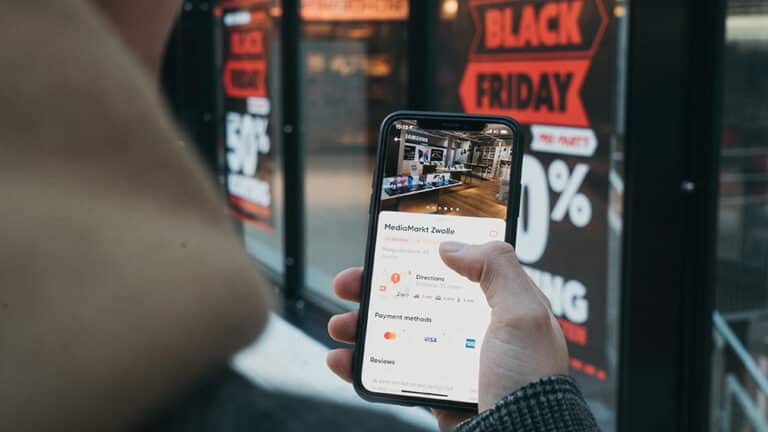Early 2014, team DigiView was speculating about Facebook’s future as something much more than just an app with a flow for records and ads. We talked about Facebook as a future ecosystem that soon would be shaped into a platform where we chat, pay, book, search, share. By already have the knowledge about this, we knew why it was and is still a forum worth investing in.
Shopping on Instagram, Facebook Payment in Messenger, Facebook Marketplace as a competitor of Blocket and Facebook Watch are all new features that have been strong signs that the ecosystem is starting to take shape. With Libra, Facebook is taking another step forward. Not only for the platform itself, this means great changes and opportunities, but also for industries that can benefit from Libra and blockchain technology.
The Libra Currency
Libra is a global, digitally native, reserve-backed cryptocurrency built on the foundation of blockchain technology. People will be able to send, receive, spend, and secure their money, enabling a more inclusive global financial system. Facebook announced the digital currency with the statement:
“What if we made money truly global, stable and secure? What if everyone was invited to the global economy, with access to the same economic opportunities. Now we are introducing Libra – a new global currency designed for the digital world”.
Behind the currency is not just Facebook but an association of 28 partners like Visa, Mastercard, Uber, Vodafone, Paypal and Spotify, which further indicates that Libra have every opportunity to fly with giants like these.
The Libra Blockchain
The Libra Blockchain is operated by a network of validator nodes. The evolution of the blockchain will be overseen by the Founding Members of the Libra Association, and each member will be responsible for running a validator node. As the network grows and becomes more self-sustaining, the Libra Association will work to gradually transition to a permissionless mode of operation.
The Libra Association
The evolution of the Libra Blockchain will be overseen by the Libra Association, an independent not-for-profit headquartered in Geneva. The association will be responsible for facilitating the operation of the Libra Blockchain and managing the reserve that backs the currency. The Libra Association will consist of geographically distributed and diverse businesses, nonprofit and multilateral organizations, and academic institutions.
The 28 soon-to-be founding members of the association and their industries include:
- Payments: Mastercard, PayPal, PayU (Naspers’ fintech arm), Stripe, Visa
- Technology and marketplaces: Booking Holdings, eBay, Facebook/Calibra, Farfetch, Lyft, Mercado Pago, Spotify AB, Uber Technologies, Inc.
- Telecommunications: Iliad, Vodafone Group
- Blockchain: Anchorage, Bison Trails, Coinbase, Inc., Xapo Holdings Limited
- Venture Capital: Andreessen Horowitz, Breakthrough Initiatives, Ribbit Capital, Thrive Capital, Union Square Ventures
- Nonprofit and multilateral organizations, and academic institutions: Creative Destruction Lab, Kiva, Mercy Corps, Women’s World Banking
Why is Libra needed?
Libra can be seen as part of Facebook’s focus on developing countries, where Facebook is a matter of course and Internet.org by Facebook constitutes the entire Internet. Libra will also be available to those who do not have bank accounts, who want to make simple and quick payments via the mobile phone with low transaction fees.
Problems Facebook are hoping to address:
- 1.7 billion people – 31% of the global adult population – remain unbanked, meaning they do not have access to an account at a financial institution or to mobile money. – World Bank, 2017 Global Findex report
- Approximately 8.4 million U.S. households, made up of 14.1 million adults and 6.4 million children, were unbanked in 2017. – FDIC, 2015 National Survey on Unbanked and Underbanked Households
- Women are disproportionately excluded from financial systems, with nearly 1 billion left out of the formal financial system. Additionally, there is a persistent 9% gender gap in financial inclusion in developing economies. – Gates Foundation
We hope you enjoyed the reading and gained some valuable insights about the social media landscape. If you’re unsure for how to tackle things and go about it, we’re always at your disposal. Don’t forget to subscribe to stay updated! 🥳
Do not forget to subscribe to our newsletter to catch up on digital marketing updates and news about DigiView!





